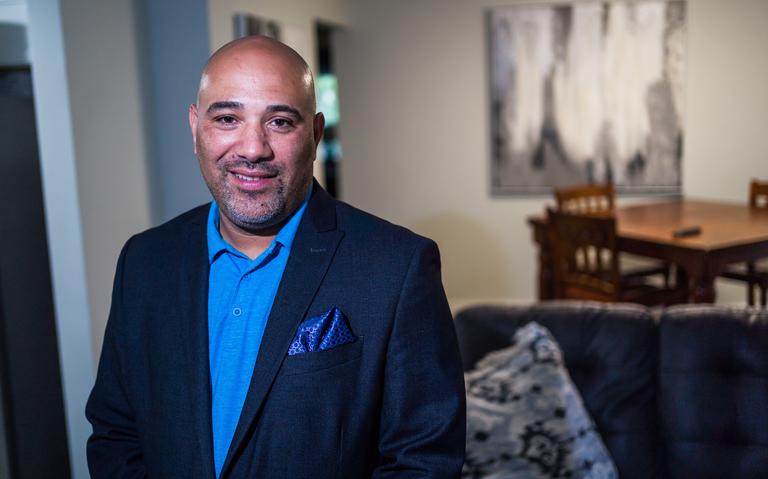Just this past week our very own executive director, Tierre Webster, featured in an article from one of Rochester’s premier newspapers, the Rochester Post-Bulletin in a series of spotlights focused on highlighting diverse voices of color in the community. In this interview, the Post-Bulletin magazine had an opportunity to speak with Tierre about his perspective on a number of issues specifically pertaining to ministry, mentorship, fatherhood and the field of social work. Tierre had an opportunity to share a bit about his own personal testimony, particularly the ways in which his career trajectory prepared him for and perfectly preceded his role here at Damascus Way. This is reflected in Tierre’s background work with family’s affected by incarceration, his work in bringing greater attention to the importance of fatherhood in maintaining stable and successful families and his time with Teen Challenge and Next Chapter, among other roles.
The article also draws out the essential place that mentorship holds in an individual’s life and the importance of maintaining a clear sense of calling when discerning the field you wish to enter. In disciplines like social work, for example, one has to realize that transformation and progress is incremental (whether for yourself or for those you serve). Your ability to maintain the very passion that led you down a particular career path is concurrent with your will to cling to that sense of calling and vision for your life. One way to succeed in this is to, “Identify a mentor that can help shape your experience,” Tierre said.
Mentorship is at its core about investing in others in an intentional way. This applies to all walks of life but is especially valuable in the realm of incarceration, where the absence of a positive influence can be keenly felt by individuals. For those who want to be a mentor figure in someone’s life, think about what you’d find attractive in a potential mentor figure and strive to become that yourself for someone else. For those seeking a mentor figure Tierre added that, “Keep your eyes open and look for someone (where) you see something in their life that you want to emulate. And so I think that’s part of the task, trying to find someone that’s doing what you want, what you admire.”
Lastly, in this interview Tierre was able to direct readers towards Damascus Way. When asked about best to aid the ministry of Damascus Way, Tierre ended with the following;
Certainly finance is obviously a major need, but I like to think of the three T’s or Time, Treasure, and Talent. So I think they’re all equally important. If I could urge somebody to do (one) thing, it’s really to spend some time getting to know your neighbors. And as you get to know your neighbors, I think what you find is (that) their narrative probably isn’t too far removed, that they have experience or know someone that’s gone through incarceration. So, as you begin to experience that, you get to see the value of the work of Damascus Way. And as you begin to value the work of Damascus, I think generally there’s a desire to get involved. Everyone has to decide how to do that and how that best fits them. So yes, we’re always looking for donors. But even more than that, I want everyone to get to know someone that has been impacted by incarceration.
We’d like to thank the Rochester Post-Bulletin for giving space to our executive director to share his story, some advice on mentorship and for bringing further communal awareness to Damascus Way.
If you are interested in reading the interview in its entirety please click the following hyperlink!

